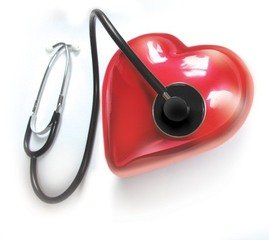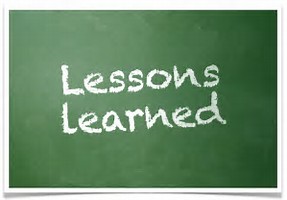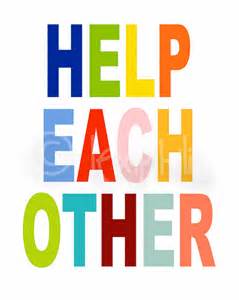This article was originally published as an op-ed in The Jerusalem Post on Wednesday, 7 Feb. 2024: https://www.jpost.com/opinion/article-785527
In part 1 and part 2, I discussed diet and exercise. These two big lifestyle behaviors have a pronounced effect on heart health for better or for worse. In this chapter, it’s time to turn to the medical establishment. What do they have to offer to rehabilitate after a heart attack? What is available to prevent a heart attack?
Hospital care
I first want to say unequivocally that I felt the sincerity of every single doctor, nurse, or volunteer that I met in the hospital. They were caring and truly wanted to help me.
But let’s put this out there right away – no one wants to spend time in a hospital. It’s not just that the pajamas are uncomfortable! Hospitals play the most critical role in caring for emergency conditions, procedures, and tests that can’t be done elsewhere. Yet staying in a hospital comes with a lot of baggage.
We are at our most vulnerable immediately after a medical event. Imagine spending an entire night in the emergency room, followed by an angiogram, being told that you can’t be stented, and bypass surgery is your only option. The next thing you know, the head of cardiothoracic surgery is standing next to your bed. I was impressed that the invasive cardiologist had acted so quickly to pass me on.
I was then told, “don’t check out and don’t go home. We need to operate on you, and it needs to be tomorrow or the next day. Stay here, we will get you prepped.” I was also informed that I was going to be out of work for up to 6 weeks; not easy for a one-man, self-employed person. I felt vulnerable and ill equipped to make rational decisions.
I was moved to the heart/thoracic ward. In short order, my drug regimen was redone and an IV was hooked up. Upon examination of my new blood work, it was decided to push off my surgery for at least one more day. The next day it was put off until at least the beginning of the next week.
Going a different route
In the meantime, my head was back on my shoulders, and we began to do research. I realized that: 1) I might be better off having this surgery in a different hospital, and 2) I might be able to avoid surgery and still have a great outcome. 8 days after I was admitted, there was still no surgery (that was a gift from G-d) and I was told to go home for a vacation and come back in about a week on a day that is convenient and do the operation.
By this point, I was already aware of other opinions. We spoke to other cardiologists, medical experts, and knowledgeable friends. Two cardiologists in one room seem to have three opinions or more.
On one extreme, I was pushed to get surgery as soon as possible and to stay home and in bed until the surgery. On the other side, a cardiologist told me to get a stent from a very skilled invasive cardiologist. He told me not to exert myself greatly but encouraged me to do slow to moderate walking on a daily basis. A third doctor told me something that would fit in between those two as far as activity.
Confusion
I was left scratching my head. First, I needed surgery immediately. Then it was decided to give my kidneys a rest from the contrast dye from the angiogram. Then I was told to go home for another week (that would make two weeks from the time I needed emergency bypass).
Finally, I met with an invasive cardiologist who explained what he can do. He gave details explaining a procedure we could try. Even if this procedure failed, I would be in a much better position if surgery was needed. At this point I understood how some of the previous information I got may have been faulty or perhaps prejudiced.
The procedure I opted for
The invasive cardiologist scheduled my procedure for stenting. I had a month to wait for the procedure. I was instructed to take my medicines, use common sense in how much to exert myself (do what’s necessary, and avoid becoming short of breath), and if I felt chest pain again, go to emergency. And so, I followed the instructions carefully.
The stent procedure took place. The cardiologist was not 100% successful, but he was successful enough (he opened my right coronary artery) that immediate danger has been removed. Depending on a test I will be having next week, I may be able to avoid pursuing any further procedure or surgery to try an open the left side.
My response as a lifestyle professional
I left out many details here. As much as I have spent a career helping people eliminate or reduce medications, these very medications, when used appropriately, can save a life. I am taking many of them right now. Hopefully, given my lifestyle habits, many of them will leave my daily regimen and others will be reduced. I also understand the responsible decisions made by doctors taking my kidney health into consideration. They all meant well, were caring, and did what they thought was in my best interest.
Some people have wondered why I am exposing my experience in such a public way. If my story helps even one person to prevent heart problems, reverse disease, or learn how to deal with the medical establishment better, then it was worth all the publicity.
What are the main takeaways of my experience?
- Eat as a plant-predominant diet with as close to zero oils as you can. Keep your salt and sugar consumption very low. Even keep fatty plant foods like unroasted-unsalted nuts and avocados low in the diet. The sooner you start, the better!
- Exercise! Aim for 35 minutes daily of any aerobic exercise you want (walking is easy and free). Put in muscle building exercise two or three times a week. You don’t need a lot to make a difference. If you don’t have the time, make the time so that you will have the time.
- If you are above the age of 40, see your doctor every 12-18 months. Get examined, including a blood test that shows all markers for cardiovascular disease—including an HS-CRP and lipoprotein (a).
- If you are deemed eligible for a procedure, surgery, or medications, always get a second or even third opinion. It is your right and something you are entitled to do.
- You are in charge. Start educating yourself on the basics of health. Ultimately, it is you that makes the final decision. It needs to be an informed one. Read books like The China Study by Dr. T. Colin Campbell, Preventing and Reversing Heart Disease by Dr. Caldwell Esselstyn. Other authors like Dr. Joel Kahn, Dr. Dean Ornish, and Dr. Neal Barnard are very worth reading.
Support

We can’t overlook the importance and crucial role of support from family and friends. My wife and family, both in Israel and abroad, were with me every step of the way, as well as an array of health professionals. Although too many to mention by name, there are some people I must thank publicly. To the family member (you know who you are) for his persistence in pursuing the best path forward, long time WFPB advocate Amy Mosery, and Dr. Ronnie Hershman from Long Island, NY. Dr. Hershmn’s first words to me were, “You aren’t having surgery.” Dr. Hershman has been there every step of the way since Amy called him.
I am so full of gratitude to all of you and surely to the One above who is the Ultimate Healer.
Having been the patient, I know that will help me be an even better health and wellness coach. I truly hope that sharing my journey has been helpful because ultimately it is you who will “add hours to your day, days to your years and years to your life”.

In reference to exercise in particular, how would you think of stair climbing–that is, going up and down a flight of stairs over and over again many times? It’s obviously cardio, but how could I compare it to the effects of walking or jogging? And what about the strength-building aspects?
Thanks!